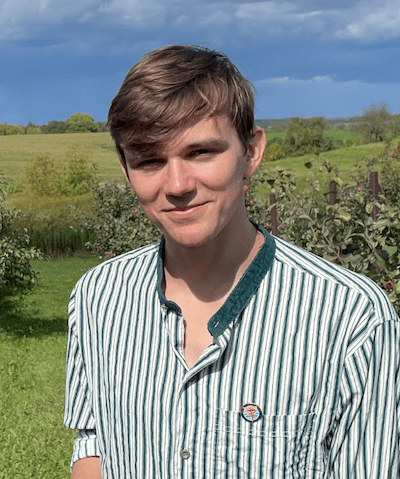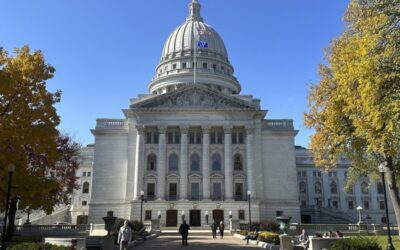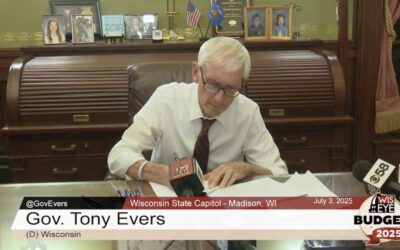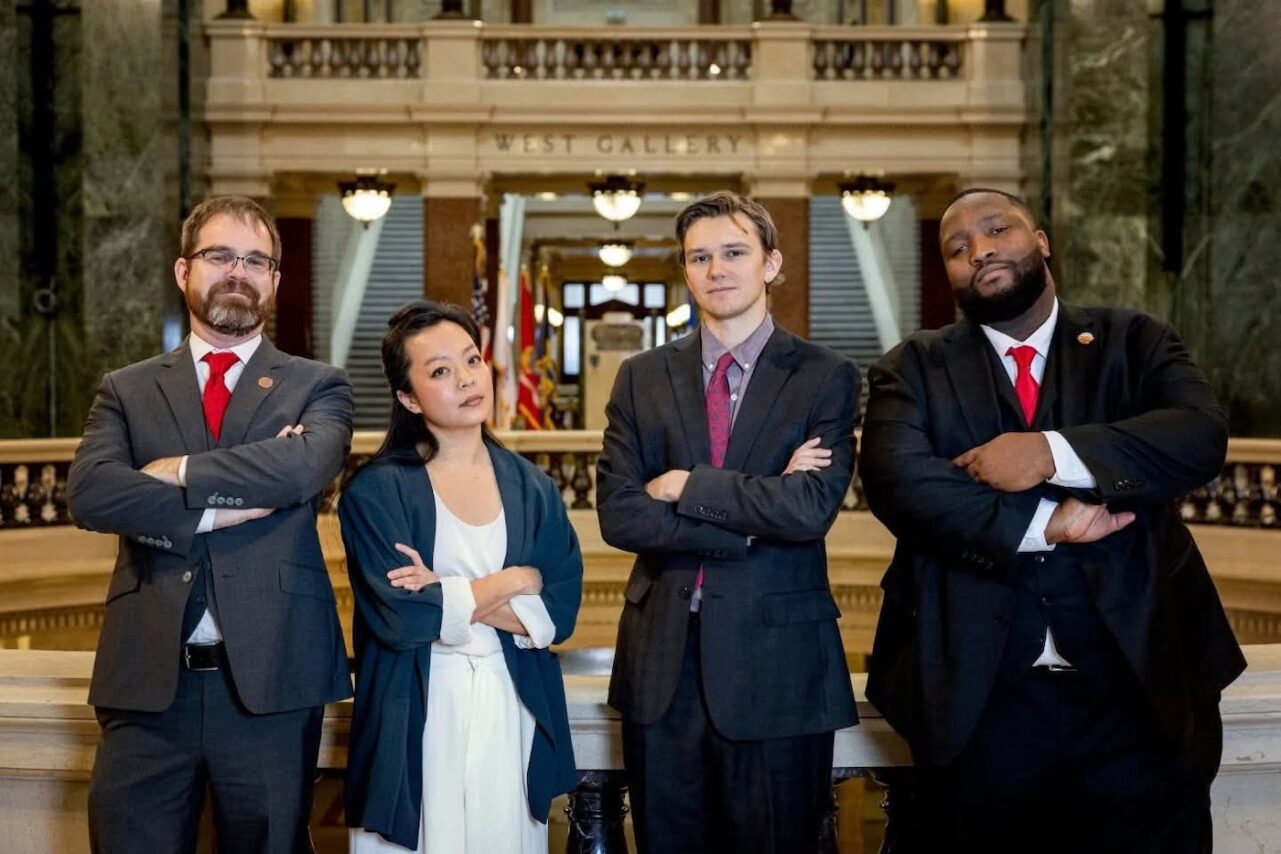
Members of the 2025 Wisconsin Legislature Socialist Caucus (l-r) Rep. Ryan Clancy (D-Milwaukee), Rep. Francesca Hong (D-Madison), Rep. Christian Phelps (D-Eau Claire), and Rep. Darrin Madison (D-Milwaukee). (Photo by Taylor Wolfram)
The Wisconsin Legislature’s Socialist Caucus emphasizes the power of “public,” starting with supporting public education.
I was elected to the Wisconsin State Assembly in 2024, shortly after my 31st birthday, in a newly-drawn district that marked the end of Wisconsin’s state-level Republican gerrymander. I survived a competitive Democratic primary and a competitive general election, thanks in part to active support from the most progressive members of the legislature, including the three who would soon become my colleagues in the four-member Wisconsin Legislative Socialist Caucus.
Now, following Zohran Mamdani’s victory in the 2025 Democratic primary for New York City mayor, there’s a surge of interest in left-wing populist politics and democratic socialism. There’s also something I’ve seen before: a pervasive suggestion that these politics can only survive in coastal metropolises. But I’ve seen first-hand, here in Western Wisconsin (half of my constituents live in the small city of Eau Claire and the other half live in the vast rural area around it), that our movement can win anywhere.
I get the question often, as I’m sure many democratic socialist candidates and elected officials do: “Why embrace the label?” To me, and many others, socialism means public services – a system of ensuring that none of our neighbors are too poor to live. But to some, the word is scary.
But all labels are scary. Like “socialist,” each is going to mean different things to different people. The label “Democrat” comes with baggage of its own: recent polling suggests that the Democratic Party has only 27% approval, and likely even lower in rural regions like mine. Candidates and movement leaders will always be communicating across different meanings and connotations.
Ultimately, the label serves me by holding me accountable now that I’m elected. I shared values with my voters and constituents last year: I come from a public education background in the state that took a sledgehammer to public school funding and public sector unions in 2011. I come from an organizing background – I organized advocates and referendum campaigners to support public schools for years – and believe elected officials should be listening to and organizing their communities rather than lording over them. I’ve learned a lot from listening to constituents who share stories of navigating Medicaid in a healthcare desert and SNAP in a food desert.
The important project is to share values with voters and constituents and then use the democratic socialist label to hold myself, as an elected official, accountable for putting those values over political expediency. Where sticking with the label of only a major political party could risk putting re-election and fundraising over values, the socialist caucus holds me to a conviction I’ve shared with my constituents: that healthcare, housing, food, and education are human rights.
All policy should be assessed first through the lens of whether it treats them as human rights, not through the lens of whether it’s politically convenient. I’ve found that my constituents aren’t looking for a representative who inauthentically walks a tightrope trying to keep everyone happy. They’re looking for honest, consistent leadership that drives toward an agenda matching the values we’ve already agreed on. Folks aren’t allergic to labels – they’re rejecting the empty politics our labels too often represent.
I won’t undersell how challenging this is. We need a policy blueprint to cut through division and propaganda. And in my view, public education is, in particular, the issue that can break through the urban-rural divide and truly build political power through solidarity and numbers.
I was an hourly employee in a Wisconsin public school, working to support students with disabilities navigating underfunded systems and teachers navigating stuffed workloads. I was a member of a union that wasn’t allowed to collectively bargain for fair wages. I’ve seen that public schools are lifelines for those who need them most – and that the politics of austerity see them instead as a drain of money that could go toward profit.
In Wisconsin, 30+ years of privatization and defunding are harmful to all communities – in many ways more so in rural areas, where a single public school building is often the cultural and economic hub for an entire region. This harm is tangible. And when I show up at doorsteps, I could lead with a label, but I usually lead with, “I’m fighting to keep your public school open. What does the school down the road mean to you?” This is where teachers and parents come to life – and those with grandkids in school, siblings in the education profession, even disgruntled taxpayers sick of referendums. The door is open.
Bold politicians standing up for public education can advance democratic socialism even in traditionally “unfriendly” districts. We aren’t telling our constituents how to think. We’re telling you that we believe there’s power in the public, and that your public school belongs to your community – not to those who wish to segregate, privatize, and profit.
People do not want their public schools to close. And they don’t want elected leaders to compromise on that.
Mamdani’s primary victory demonstrates a craving for bold, left-wing alternatives to Trumpism – alternatives that don’t cave to the most chaotic and austere Administration we’ve seen in a long time. To suggest that Western Wisconsin is not ready for that is to suggest that my neighbors are either too unintelligent or too conservative to accept our movement.
But just like our public sector labor unions have fought to stay alive after Act 10, and our public schools have fought to stay alive despite 30 years of revenue caps and a ballooning private voucher program, our region boasts a long history of farmer-labor and union movement stories that prove otherwise.
What I see is a population that has been crying out for direct investments of capital and political power for generations – only to be told by both political party establishments that meeting their basic needs is unrealistic. Farmers face cuts to SNAP and Medicaid. Public schools see cuts to mental health and general funding. Seniors see threats to Medicare and Meals on Wheels.
Our blueprint is to build relationships centered around the public: our public sector and the people in our communities and public spaces. Folks in Western Wisconsin don’t need to be radicalized into democratic socialism. They need permission not to be radicalized out of it by a status quo politics that claims meeting their needs is unattainable.
We only need to see and speak to the basic human rights of healthcare, housing, food, and education, identify their obstacles, listen to our neighbors’ needs, and work toward an actual solution. Nothing could be more democratic, or more socialist, than building a coalition of urban and rural working class people and turning that coalition into political power.
That’s what we’re doing in Wisconsin, and it’s what we must do to break free from a status quo – of neoliberalism and the fascism it enables.
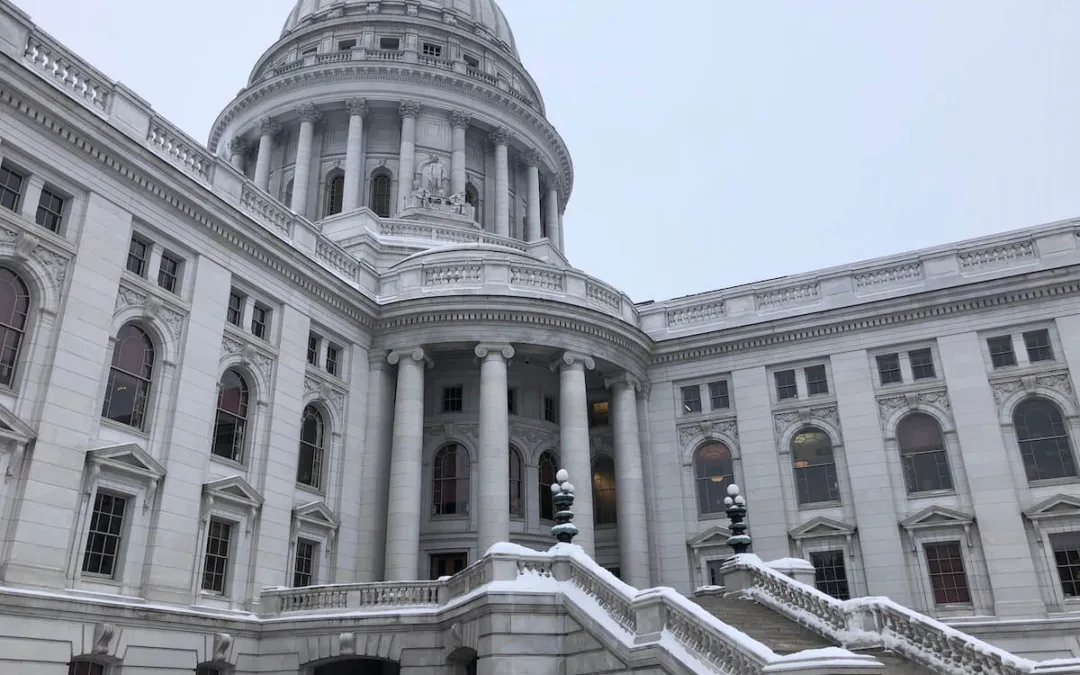
‘Who represents me in Madison?’ How to find your state legislators
It’s easier than ever to see everyone who represents you in the state Capitol thanks to websites that take the guesswork out of all the maps. It's a...

The clock is ticking on a popular land stewardship effort in Wisconsin
Some Republicans expressed interest in saving the Knowles Nelson Stewardship program, but other GOP lawmakers want the conservation effort defunded....
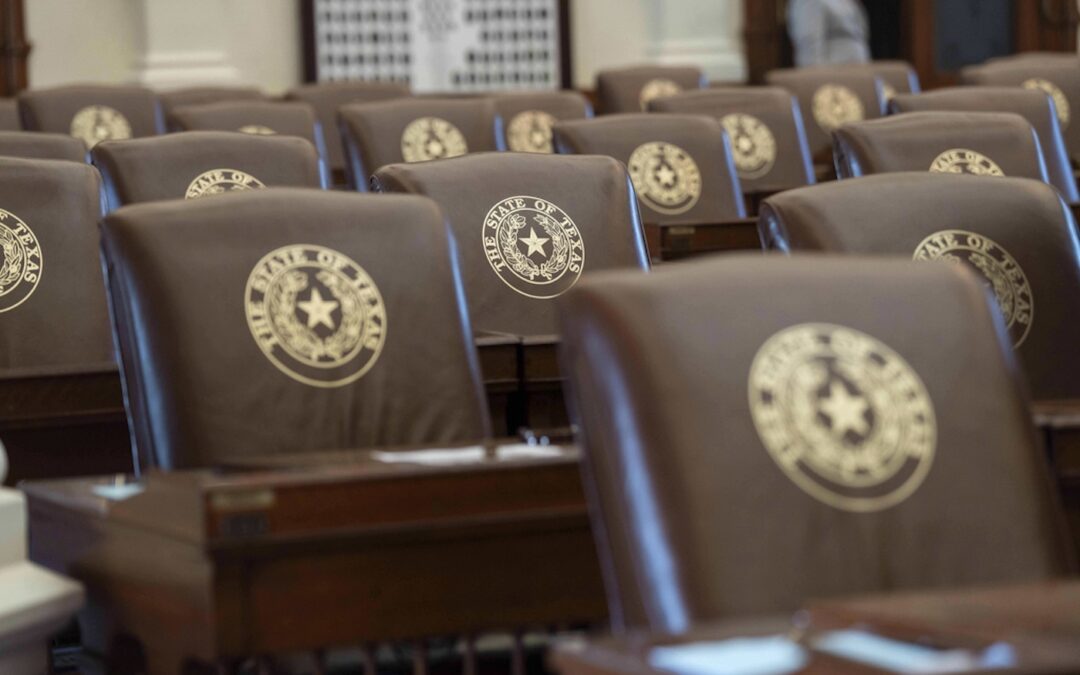
Wisconsin Lawmaker: Corrupt maps in Texas will corrupt maps everywhere
Texas Democrats leave their state to freeze a Republican legislature ordered by Trump to gerrymander their congressional boundaries. [Editor’s Note:...

In a ‘Love Letter to Wisconsin,’ Tony Evers explains why he won’t run for governor again
The announcement from Wisconsin’s two-term chief executive triggers wide-open 2026 primaries in both parties. Tony Evers, who defeated Scott Walker...

